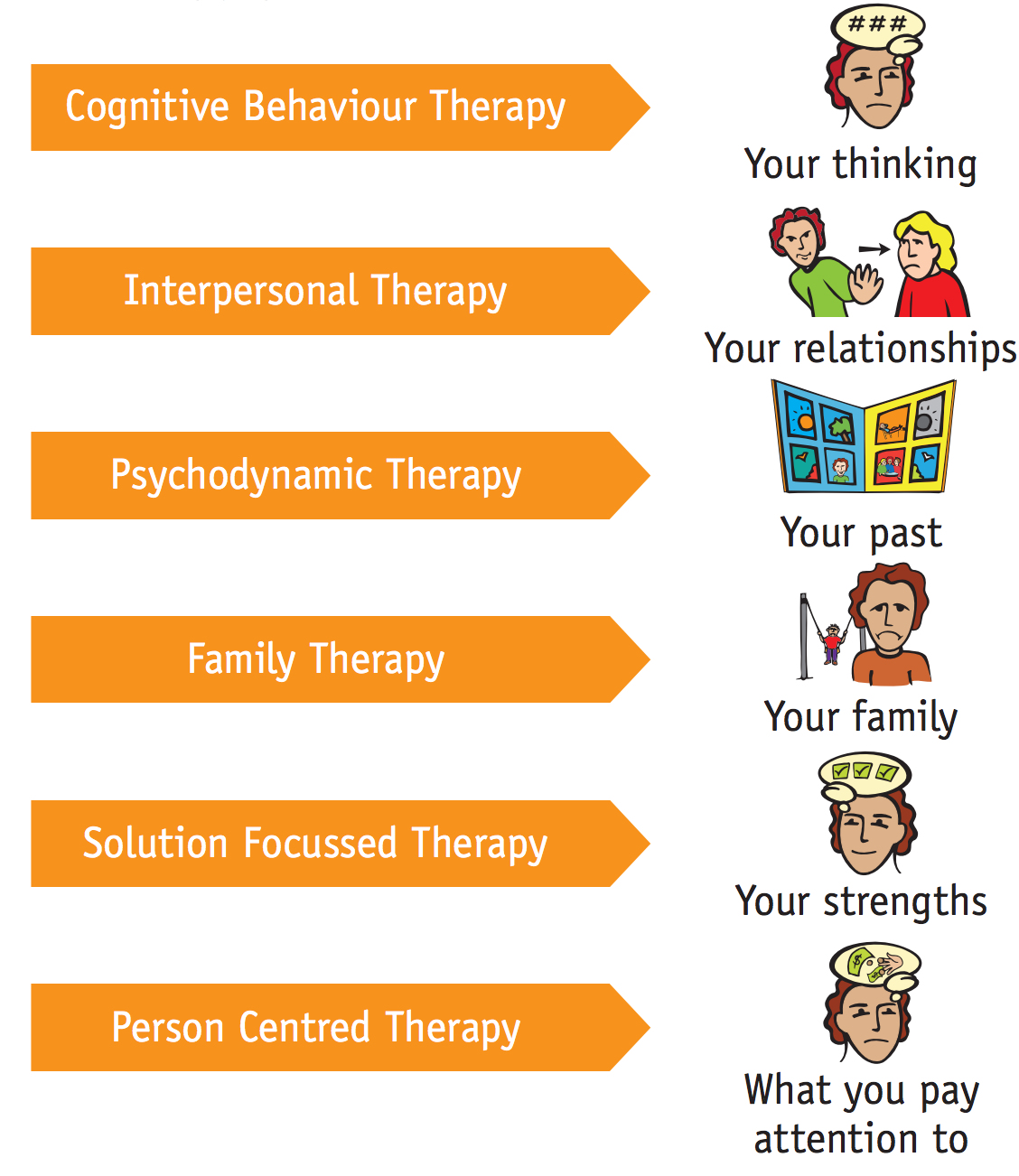Discovering the Benefits of Virtual Therapy in Modern Mental Healthcare
The surge of virtual therapy notes a substantial change in mental healthcare. It provides boosted ease of access, enabling individuals from varied histories to seek help without geographical restraints. Versatility in scheduling fits varying way of lives, while the convenience of home can foster openness. Nonetheless, the ramifications of these changes extend beyond plain comfort. The developing landscape of therapy raises vital inquiries about its long-term impacts on patient involvement and therapy end results.
Boosted Access for All
Typical therapy typically presents obstacles such as geographical area and organizing conflicts, virtual therapy greatly enhances access for individuals looking for psychological health and wellness support. By eliminating the demand for physical traveling, virtual therapy allows customers from remote locations or those with movement obstacles to connect with certified experts. This setting of therapy can get to underserved populations who may lack local psychological wellness resources, thereby resolving disparities in access to care. In addition, virtual systems can accommodate varied needs, providing solutions in numerous languages and accommodating various cultural histories. Clients can engage with a more comprehensive variety of professionals, offering them with choices that line up with their particular demands and choices. This raised access promotes a much more inclusive setting, allowing individuals to look for aid without the stigma commonly connected with in-person gos to. On the whole, virtual therapy stands for a considerable innovation in making psychological healthcare extra easily accessible to all.
Versatility in Organizing Sessions

As virtual therapy continues to get grip, its inherent flexibility in organizing sessions verifies to be a considerable advantage for several people. Unlike conventional in-person therapy, virtual therapy permits customers to select session times that best fit their personal and expert commitments. This adaptability fits those with requiring work schedules, family members responsibilities, or various other dedications that can make participating in physical appointments challenging.
Additionally, clients can quickly reschedule or readjust their sessions as needed, decreasing the tension associated with stiff visit systems. The availability of various time slots throughout the week, including evenings and weekend breaks, even more boosts ease of access. This flexibility not only urges uniformity in presence yet additionally promotes a higher commitment to the therapeutic procedure. Inevitably, the adaptability in scheduling sessions stands for a transformative change in psychological healthcare, encouraging people to prioritize their health without compromising various other elements of their lives.
Convenience of a Familiar Atmosphere
The convenience of an acquainted atmosphere substantially enhances the performance of virtual therapy for several customers. Taking part in therapy from the safety of their own homes allows people to feel more comfortable, decreasing anxiousness that may accompany conventional in-person sessions. This experience can assist in open interaction, making it possible for customers to express their thoughts and feelings much more openly.
Moreover, the presence of personal things and the capability to control their surroundings can add to a complacency and relaxation. Customers typically report that remaining in a comfy room allows them to concentrate more on the healing process instead of the setting itself.
In addition, the casual nature of virtual sessions can assist dissolve barriers that might exist in a typical workplace atmosphere, fostering a much deeper link with specialists. In general, the comfort of familiar environments plays a crucial role in improving the healing experience and performance for many individuals looking for mental wellness support.
Broader Variety Of Therapeutic Options
A broader range of therapeutic choices appears via virtual therapy, allowing clients to access numerous techniques that may not be feasible in typical settings. This adaptability allows people to explore diverse approaches such as cognitive-behavioral therapy, mindfulness techniques, art therapy, and even specialized treatments like trauma-informed treatment or dialectical behavior modification.
Clients can choose from a more comprehensive spectrum of specialists, including those who specialize in specific niche locations or specific populations, enhancing the likelihood of finding a suitable match. Virtual systems often supply access to team therapy sessions, assistance areas, and workshops that might be geographically not available otherwise.
This variety encourages customers to participate in their recovery procedure according to their distinct choices and requirements, potentially enhancing motivation and commitment to treatment. Because of this, the landscape of psychological health care becomes extra inclusive and adaptable, dealing with a larger variety of specific experiences and obstacles.
Minimized Preconception Surrounding Therapy
Accessing therapy through virtual systems adds to a significant decrease in the preconception traditionally connected with psychological healthcare. By supplying a discreet and exclusive atmosphere, virtual therapy permits individuals to look for help without the anxiety of being judged or recognized. This privacy attract those that might or else be reluctant to go after in-person therapy due to societal assumptions surrounding psychological health and wellness.
As the occurrence of virtual therapy rises, it stabilizes the conversation around psychological wellness, making it a much more acceptable component of day-to-day life. Individuals usually feel extra comfortable reviewing their experiences on-line, advertising openness and minimizing feelings of seclusion. The accessibility of these services likewise encourages a broader market to involve with mental health and wellness resources, promoting a culture of support instead of shame. Ultimately, the rise of virtual therapy plays a crucial duty in reshaping mindsets in the direction of looking for help, adding to a much more approving culture concerning psychological health and wellness difficulties.
Cost-Effectiveness and Affordability

Lowered Session Expenses
Several individuals looking for mental wellness support discover that virtual therapy greatly minimizes session prices compared to traditional in-person choices. The removal of travel costs and pause job usually contributes to total financial savings. Additionally, many virtual specialists supply competitive rates as a result of reduced overhead expenses linked with maintaining a physical workplace. This shift in expenditure enables customers to access quality psychological wellness solutions without the monetary stress that might include standard therapy. For numerous, this price allows more regular sessions, which can boost therapy end results. Because of this, virtual therapy not only democratizes access to psychological wellness treatment yet likewise offers a sustainable financial model that lines up with clients' budgets, making mental wellness assistance more attainable for a broader target market.
Increased Gain Access To Choices
While traditional therapy frequently presents logistical barriers, virtual therapy substantially increases accessibility alternatives for individuals looking for psychological healthcare. By removing the requirement for travel and enabling flexible organizing, virtual therapy suits diverse way of livings and commitments. This ease of access is specifically beneficial for those in remote locations or with mobility obstacles. Furthermore, the cost-effectiveness of virtual therapy reduces financial pressure, making mental health services extra reachable. Several systems offer tiered pricing or moving range charges, promoting price. Insurance firms significantly acknowledge virtual therapy, additional improving its financial ease of access. Overall, virtual therapy not just broadens the extent of that can get care however additionally addresses economic barriers, making mental health assistance more inclusive and achievable for all.
Boosted Continuity of Care
Improved continuity of care arises as a substantial benefit of virtual therapy in contemporary mental healthcare. This strategy enables individuals to preserve regular communication with their specialists, no matter geographical barriers or organizing conflicts. adhd counselling. The adaptability of virtual sessions promotes regular check-ins, which are crucial for keeping track of development and adjusting therapy prepares as essential
In addition, electronic wellness records and telehealth platforms help with seamless details sharing amongst treatment providers. This interconnectedness guarantees that all experts entailed in an individual's care are updated on therapy growths, leading to more collaborated and reliable treatments.
Clients commonly experience reduced anxiousness and boosted interaction due to the convenience of accessing therapy from familiar settings. Such availability improves adherence to treatment routines, eventually enhancing end results - adhd counselling. To summarize, virtual therapy not only bridges spaces in mental health services however also fortifies the connection of treatment, an essential part of successful healing connections
Frequently Asked Concerns
Just How Does Virtual Therapy Make Certain Privacy and Personal Privacy for Customers?
The present question addresses the measures virtual therapy uses to secure client privacy. Making use of encrypted platforms, safe and secure logins, and compliance with laws like HIPAA, virtual therapy guarantees that delicate info continues to be personal and inaccessible to unapproved individuals.
Can I Change Therapists Conveniently in Virtual Therapy?
Changing specialists in virtual therapy is generally simple. Customers can communicate their wish for an adjustment with the system, allowing for adaptability in discovering a better suit without the logistical challenges of in-person appointments.
What Innovation Do I Need for Virtual Therapy Procedure?
To join virtual therapy sessions, a specific generally requires a trustworthy internet connection, a computer or mobile phone with a camera and microphone, and accessibility to a secure video clip conferencing platform specified by their specialist.

Are Virtual Therapy Sessions as Effective as In-Person Procedure?
Current research studies show that virtual therapy sessions can be just as effective as in-person sessions, depending on the individual's choices and scenarios. Aspects such as convenience and access might enhance the overall restorative experience for some clients.
What Should I Do if I Experience Technical Issues Throughout a Session?
If technological problems occur during a session, one must comfortably communicate the trouble to more info the specialist, effort to reconnect, or button to a backup approach. Perseverance and versatility are essential in managing these disturbances.